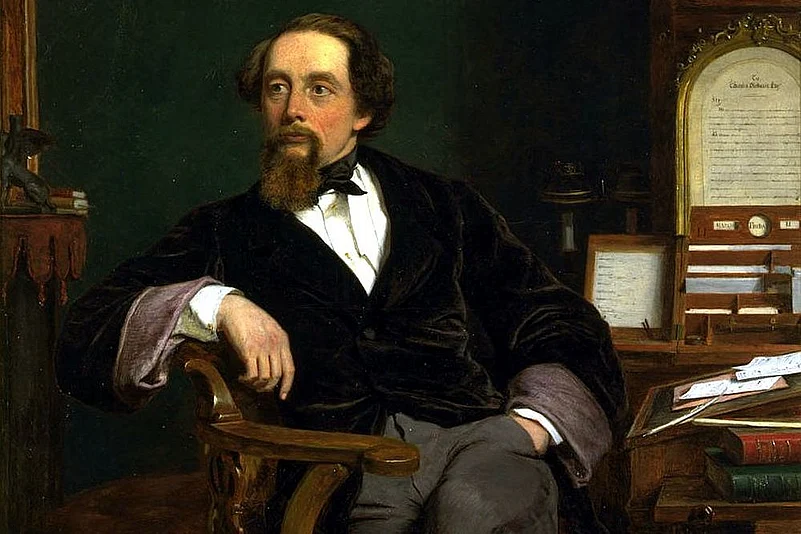Some 205 years ago, a legend was born, one that will come to define his era, in ways brutal and upfront.
Two centuries later, Charles Dickens continues to influence society with his ideologies, struggles, and what will strive to remain, his immortal works of art.
As a tribute to him on his birthday, we reminisce about everything Dickensian, everything closer to his heart and our souls.
Dickensian Poverty
Dickens didn’t shy away from portraying the squalid living conditions of the 19th century Victorian England workhouses. With his literary genius and empathetic acknowledgement of the treatment of the poor, his works embody all that the Victorians did not want to pay heed to- poverty, that later came to be explicitly known as Dickensian poverty.
Advertisement
The 1834 New Poor Law was an attempt to classify the poor into ‘deserving’ and ‘undeserving’ of government sponsored amenities.
Any fit and abled poor was made to work in workhouses to earn bread. However, the life at workhouses was miserable, to say the least.
With sarcasm, wit and a dominant attack on such institutions, Dickens, through his work of art, slammed any and every notion that was in favour of utilitarian men (whom he sarcastically referred to as ‘very sage, deep, philosophical men’ in Oliver Twist) hampering the growth and prosperity of the poor.
His second book Oliver Twist (1838) was far beyond just a fictional work of art.
Advertisement
A Buildungsroman featuring the journey of an orphan, Oliver Twist takes us back to when England wasn’t just a royal country of Queen Victoria, workhouses were not just a place of work and the poor was not just one without money.
Employing the means of sarcasm, Charles Dickens slams the utilitarian notion of applying ‘useful’ laws, even if meant they were not useful for a vast section of the society- the poor, the pauper.
Amendment to the Poor Law ‘established the rule, that all poor people should have the alternative (for they would not compel nobody, not they) of being starved by a gradual process in the house, or by a quick one out of it.’
Dickensian White Christmas
A Picturesque location covered in snow, just in time for Christmas, was Dickens’ idea of Britain’s most favourite festival, suggest modern commentators who describe Dickens as a ‘man who invented Christmas’.
White Christmas remains an uncommon occurrence in Britain, but its depiction in A Christmas Carol seems like there is snow every year!
In his biography of Dickens, Peter Ackroyd wrote: "In view of the fact that Dickens can be said to have almost singlehandedly created the modern idea of Christmas, it is interesting to note that in fact during the first eight years of his life there was a white Christmas every year; so sometimes reality does actually exist before the idealised image.
Advertisement
Dickensian Characters
Dickens was one of the most prominent novelists in Victorian England. With works like Great Expectations and Hard Times mirroring the times and culture of England in the 19th century, Dickens introduced us to characters that will forever remain in the shadows of English literature.
From Magwitch in Great Expectations to Mr M'Choakumchild, the teacher in Hard Times, or the ambitious lawyer CJ Stryver in The Tale of Two Cities, the characterization was an important part in Dickensian writing.
Some characters have even made to the dictionary. The cold hearted miser in Dickens’ A Christmas Carol , Scrooge is now recognized as a noun meaning somebody mean-spirited or lacking generosity.
Advertisement
For a man who would continue to define poverty, literature and christmas two centuries later, it makes it nothing short of an extraordinary worldview and artistic intelligence that even today, remains unparalleled, undefeated.




















